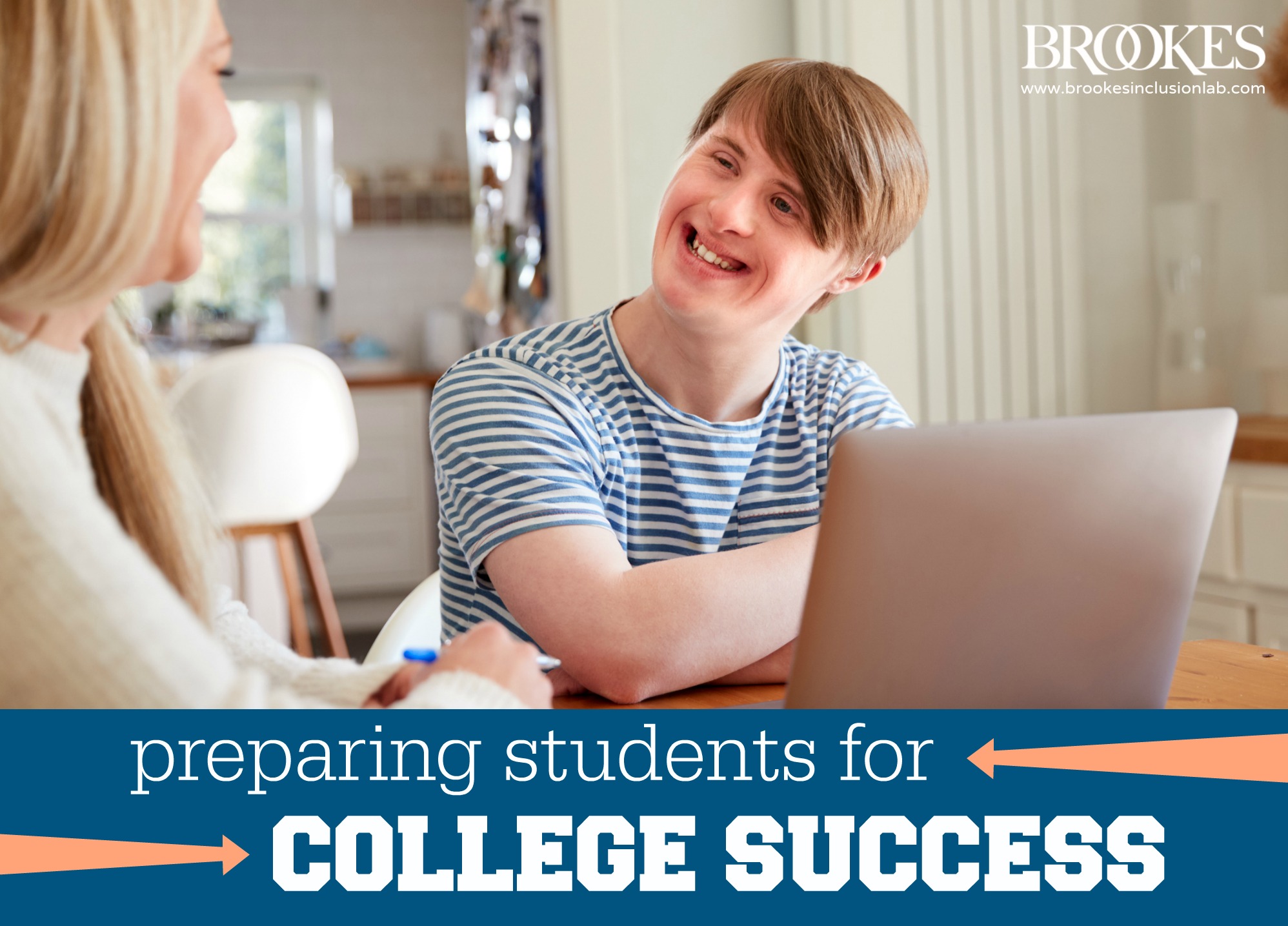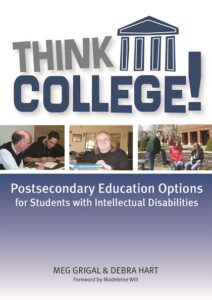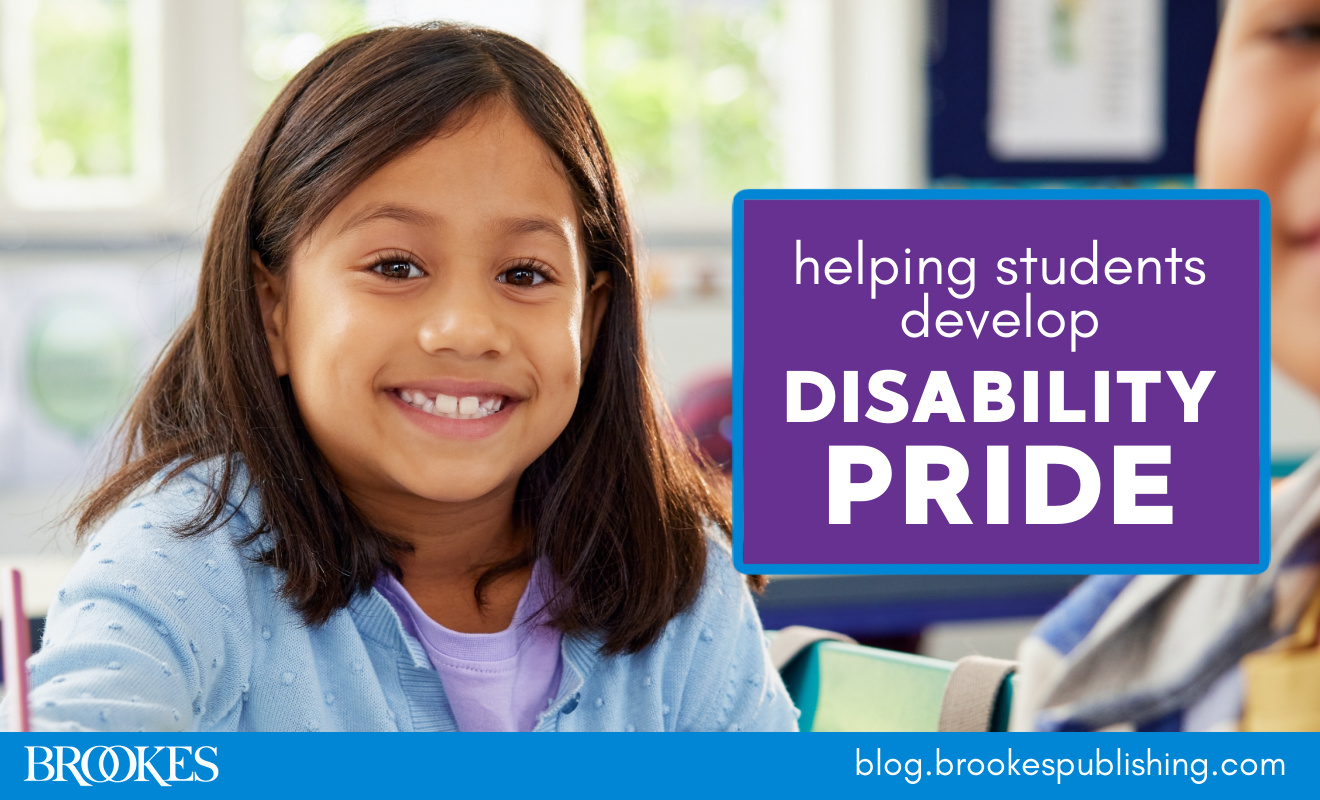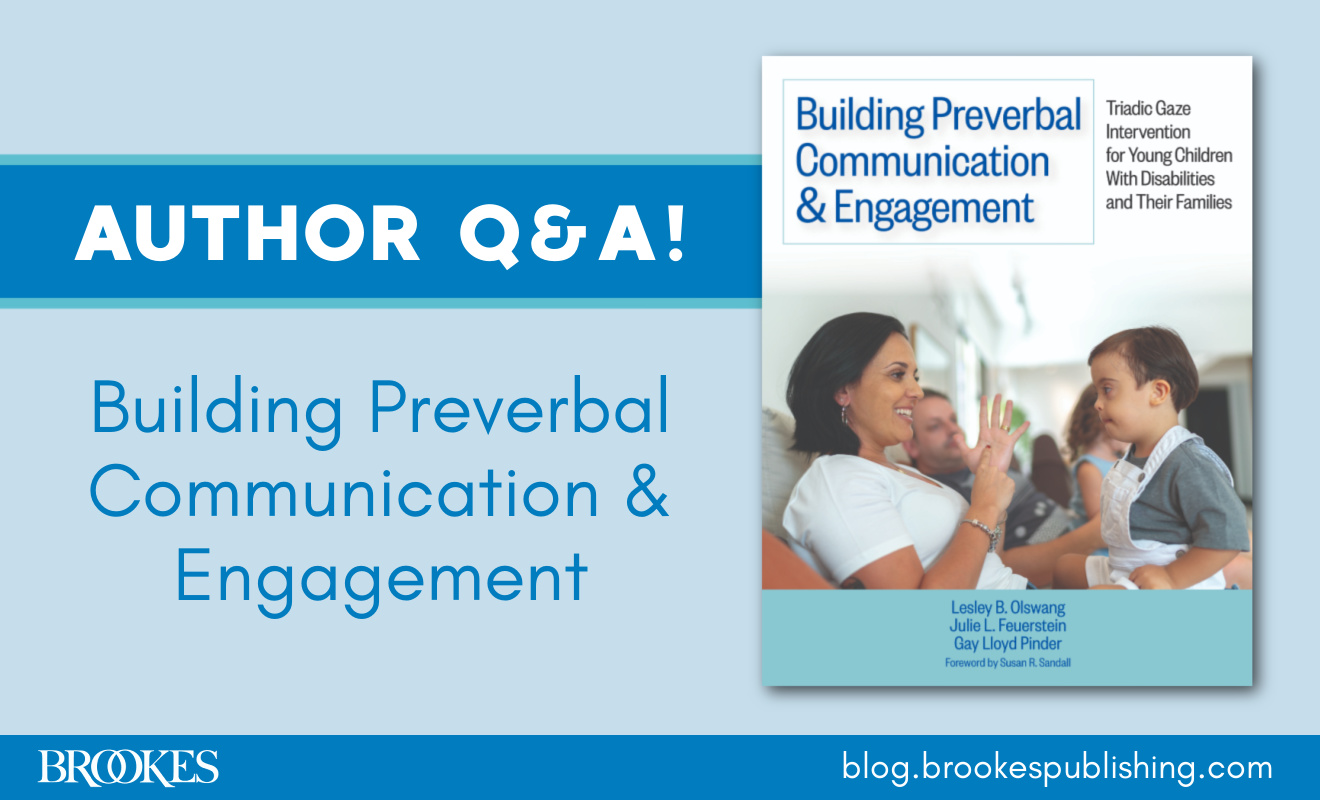8 Things Families Can Do to Prepare Students with Disabilities for College Success
December 1, 2020
Postsecondary education can be a powerful and meaningful experience for young adults—and as more and more colleges and universities establish inclusive programs, more students with intellectual disability are deciding to pursue higher education as a goal.
College isn’t the only path to an independent, happy, and self-determined life, but it is a place where students can:
- make new friends
- learn to ask for accommodations
- acquire and strengthen new skills
- expand their ability to set and work toward goals
- balance work with a social life
- build a sense of self
- connect new skills and information to real-life adult outcomes
- formulate a vision of their desired future
 Today’s post is for parents of students with intellectual disability who have decided that college is a goal they want to pursue. Excerpted and adapted from Think College!, by Meg Grigal and Debra Hart*, this article outlines eight things families can do to help get their child ready for success in a postsecondary program. Share these key steps with families to start conversations with them and help them begin planning for the future!
Today’s post is for parents of students with intellectual disability who have decided that college is a goal they want to pursue. Excerpted and adapted from Think College!, by Meg Grigal and Debra Hart*, this article outlines eight things families can do to help get their child ready for success in a postsecondary program. Share these key steps with families to start conversations with them and help them begin planning for the future!
Contact people who have first-hand experience with helping students access postsecondary education—especially parents and self-advocates. Ask if they’ll speak with you about what did and didn’t work for them.
Be an active part of the person-centered planning team. You know your child better than anyone, and you can offer invaluable input into which goals should be set for your child and which supports may lead to success. The rest of the planning team can offer you important new information, too—you may learn about additional skills, talents, and characteristics your child exhibits with friends or teachers but might not engage in at home. Taken together, all this information will be extremely helpful when putting together an individualized plan for postsecondary education.
Do the research—and share your knowledge. Does your school system currently offer postsecondary options or supports for students with intellectual disability? If not, that may be because staff members aren’t educated about the possibilities. Increase their awareness by researching existing postsecondary programs and services, funding sources, and community partnerships, and sharing information about other success stories with key decision makers. Be sure to clearly communicate that access to postsecondary education is not only a real possibility for your child, but also a real need and expectation.
Start planning for college early. You can take several action steps—even as early as middle school—that will help the process of planning for college:
- Encourage academic courses: The more experience your child has in academic class settings, the more prepared they’ll be for college settings.
- Start financial planning: Research all the possibilities! There may be several options for funding college, from being supported by the local education agency to accessing local, state, and federal financial aid and disability-specific programs.
- Get college in the IEP transition plan: Goals related to accessing postsecondary education should be included in your child’s IEPs as early as possible.
Want a more in-depth checklist of actions your child should take during each year of high school to prepare for college? This blog post has a printable college prep checklist you can use to ease your planning process.
Visit colleges and look through catalogs together. College is a strange and new experience for all students. If your child is especially sensitive to transitions, take steps ahead of time to acclimate them to the campus experience. Visit schools in person if you can, and sit down together with college catalogs and websites to look at photos of the campus and students, maps that show where the buildings are, and courses your child might be interested in taking. Once your child has visited different colleges—whether in person or virtually—the transition to a college campus may be easier.
Help your child advocate for supports that minimize risk. If and when your child is admitted to a postsecondary program, individualized supports should be set up to minimize potential risks, such as getting around campus safely and effectively, asking for help appropriately when needed, and learning to take cues in social situations. Talk with your child and the rest of the team to decide which supports might be needed, and help your college student advocate for them.
Effective supports might include items as simple as a color-coded map, a cheat sheet of phrased questions, or a phone with preprogrammed phone numbers. Or your child might need more intensive support from a one-on-one education coach, companion, or mentor. Practice with your child so they can accurately describe their disability and ask for supports. The more practice they have, the easier it will be for them to self-advocate at college. (Want more tips? See this blog post: 12 College Success Tips for Students with Disabilities.)
Prepare for your changing role. You’ve played so many roles in your child’s life: guardian, overseer, protector, decision maker. When your child transitions to college, prepare for those roles to shift as you step back and allow your child to take more control and make more decisions. This may be tough; you might watch your child make different and less optimal choices, and they may have to stumble sometimes and learn to recover. You’re still a protector, but from a greater distance. Start moving from a primary decision maker to a support role in your child’s life as early as you can, and seek out your own support from other parents who’ve been there.
Advocate for more change. When your own child starts their college adventure, think about what you can do to help make postsecondary education a reality for more students with disabilities. Many types of professionals need to be aware of the postsecondary options available to young people with disabilities—from the medical professionals who give families advice in their child’s earliest years to the educators, community service providers, and policymakers who can help expand opportunities for all students. Write to your representatives, speak at local schools, start a blog, and post information on social media that can help other families “think college” for their children.
Preparing your child for postsecondary education may have its challenges, but college isn’t an out-of-reach dream, and you’re not alone. Ask for help from friends, family, and professionals when you need it; bring a positive attitude to the quest for college; take breaks when you need them; and when you run into obstacles, try to see them as concrete clues about which issues you need to tackle next. Let us know what steps you need the most help with, so we can create blog posts (and maybe even books!) to support you along the way.
***
*This post was excerpted and adapted from the book Think College!, specifically Chapter 5: Student and Family Perspectives, by Amy Dwyre, Meg Grigal, and Janice Fialka.
EXPLORE THE BOOK
 Think College!
Think College!
Postsecondary Education Options for Students with Intellectual Disabilities
By Meg Grigal, Ph.D., & Debra Hart, M.Ed.
Help students with intellectual disabilities succeed in college with this comprehensive resource. You’ll discover the big picture of available postsecondary options and learn how to support students with disabilities before, during, and after a successful transition to college.
LEARN MORE



Write a Comment
Your email address will not be published. Required fields are marked *
Post a Comment